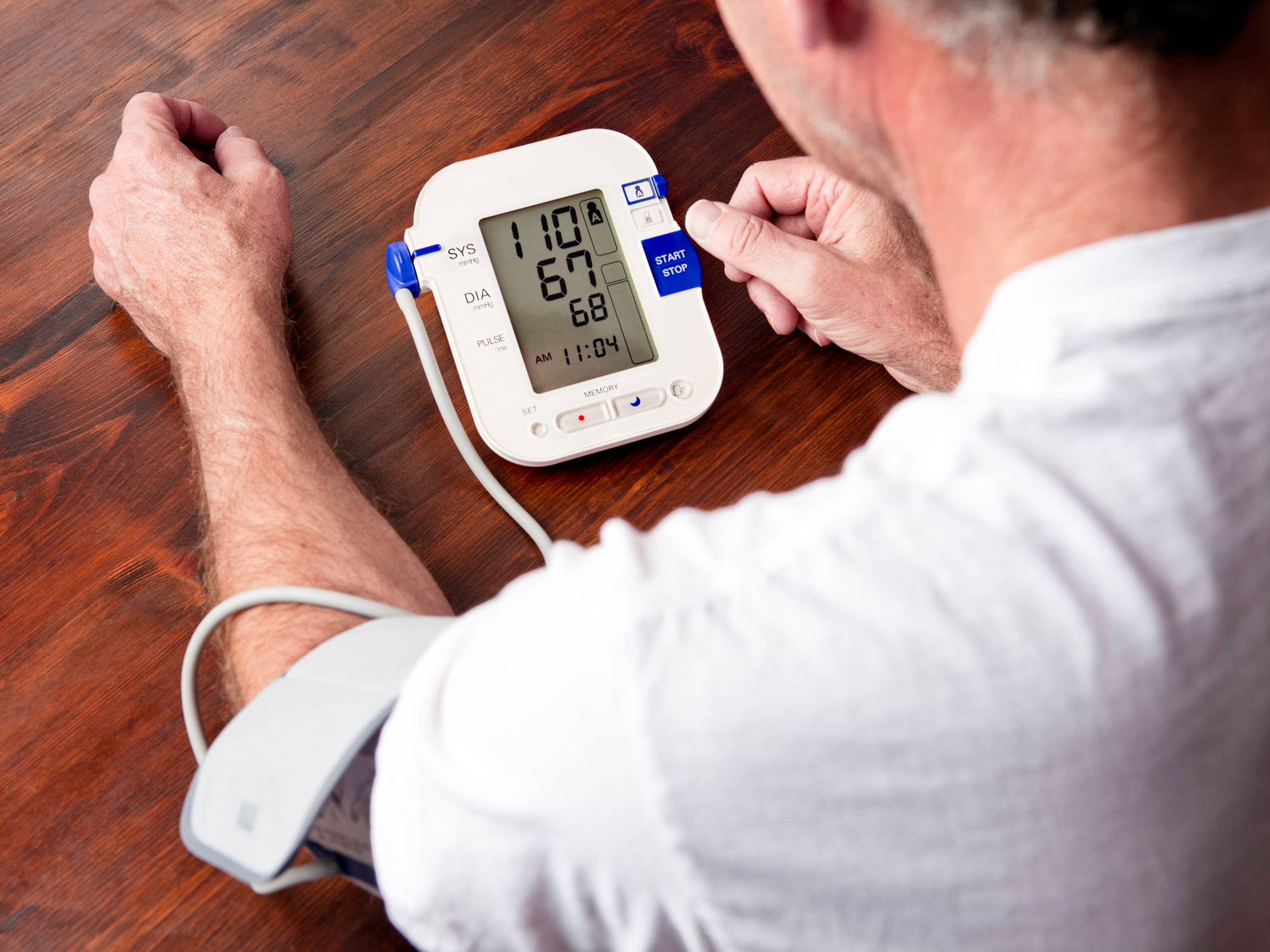Get Easy Health Digest™ in your inbox and don’t miss a thing when you subscribe today. Plus, get the free bonus report, Mother Nature’s Tips, Tricks and Remedies for Cholesterol, Blood Pressure & Blood Sugar as my way of saying welcome to the community!
What to know if you’re diagnosed with high blood pressure under the new rules

In 2017, the American College of Cardiology created new blood pressure guidelines for treating high blood pressure.
They said that people with blood pressure readings of 130/80 mm Hg should receive treatment. Previously, people weren’t treated unless their reading was at least 140/90 mm Hg.
The ACC made this change under the assumption that it’s better to catch creeping blood pressure sooner rather than later. But despite their good intentions, the change was controversial.
Would treating more people for high blood pressure really help their health?
A lot of people said no. And there’s new evidence that these skeptics were right…
Why the new blood pressure guidelines do more harm than good
Based on the ACC’s new blood pressure guidelines, there are two “stages” of high blood pressure that require treatment:
- Stage 1: Systolic between 130-139 or diastolic between 80-89
- Stage 2: Systolic at least 140 or diastolic at least 90 mm Hg
Researchers from the Technical University of Munich Hospital in Germany recently looked at data from 12,000 people to see how cardiovascular disease risk compares between people who fall in these two stages. Here’s what they found…
People who fell in the newly created “Stage 1” category weren’t really any more likely to develop heart disease than people with normal blood pressure. So, is it worth treating? Especially when blood pressure meds come with their own side effects? Some even come with a higher cancer risk.
Researchers also found evidence that being labeled hypertensive doesn’t necessarily motivate people to make lifestyle changes, which is part of the reason the ACC created the new category. Their research showed that even people who fall in the more serious “Stage 2” category keep practicing unhealthy habits like smoking and being sedentary. They didn’t necessarily change these habits just because they got a high blood pressure diagnosis. So, why would “Stage 1” people be any different?
Even more concerning, receiving a diagnosis of high blood pressure might have negative health repercussions…
Researchers believe there’s something called the “labeling effect.” People who think of themselves as “sick” develop mental health issues like anxiety and depression due to their diagnosis. And, these mental health issues raise cardiovascular disease risk too. In fact, depression increases the risk of dying from cardiovascular disease risk just as much as high cholesterol levels or obesity.
Read: 19 natural alternatives for healthy blood pressure
“The American College of Cardiology itself has calculated that the proportion of adults diagnosed with high blood pressure will increase from 32 to 46 percent,” says lead researcher Professor Karl-Heinz Ladwig. “That means 14 percent more who have to deal with the additional mental stress – although their risk of developing a potentially deadly cardio-vascular condition is not significantly higher, and despite no real expectation of extra motivation through the diagnosis.”
What to do about your blood pressure
Europe hasn’t adopted the same guidelines as the US for treating high blood pressure, and they probably never will. Why?
Because these guidelines may do more harm than good.
Of course, Americans already have these new blood pressure guidelines. So, if you fall into the newly created “Stage 1” category, don’t let it get you down. There are plenty of ways to improve your blood pressure, like:
- Exercising. For most people, it only takes 30 to 60 minutes of exercise five days a week to lower blood pressure by 4 to 9 mmHg.
- Losing weight. If you’re overweight, losing weight can lower your blood pressure significantly.
- Relaxing. It’s no secret that stress increases blood pressure. Luckily that means relaxing has the opposite effect. A few simple ways to biohack your blood pressure is to try yoga, meditation or biofeedback to induce the relaxation response in your body.
- Sleeping. Slacking off on sleep increases your odds of developing high blood pressure. So, getting seven to eight hours of sleep per night is a simple way to improve your blood pressure.
- Eat a blood pressure-friendly diet. Eating more whole grains, fruits and vegetables can improve your blood pressure… especially options that are high in potassium. Avoiding processed foods that are high in sodium is a good idea too. You’ll probably want to cut out drinks that increase blood pressure like those containing caffeine and alcohol too.
Editor’s note: Are you feeling unusually tired? You may think this is normal aging, but the problem could be your master hormone. When it’s not working, your risk of age-related diseases skyrockets. To reset what many call “the trigger for all disease” and live better, longer, click here to discover The Insulin Factor: How to Repair Your Body’s Master Controller and Conquer Chronic Disease!
Sources:
- Early treatment has no survival benefits — Technical University of Munich
- New ACC/AHA High Blood Pressure Guidelines Lower Definition of Hypertension — American College of Cardiology
- 10 ways to control high blood pressure without medication — Mayo Clinic
- What’s to know about high blood pressure? — Medical News Today













